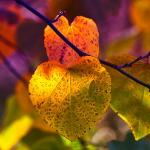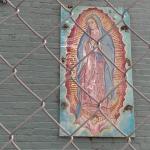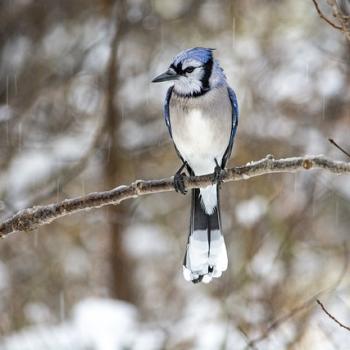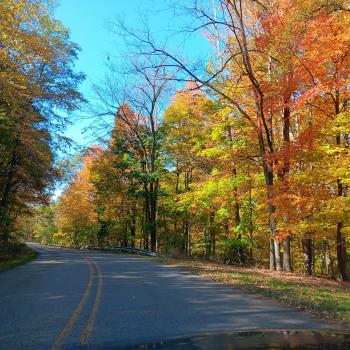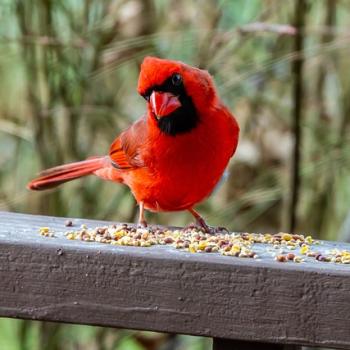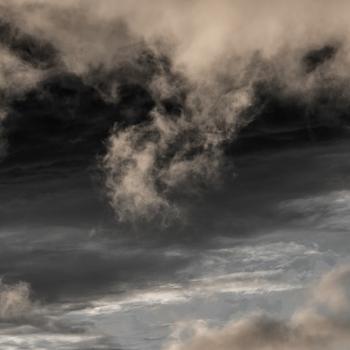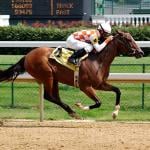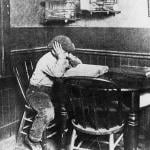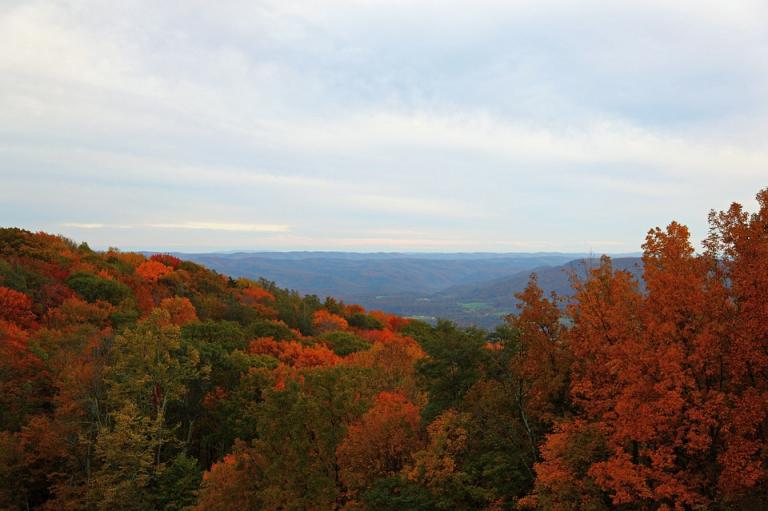
My cousins found a wall of black obsidian, way out in the middle of the woods.
This was a long, long time ago, just before the PCOS set in at puberty and my life was over, when we were all still the best of friends. Every year we met up to play multiple times at my wonderful grandpa’s house, in his magic garden on a triple lot that might as well have been a whole farm. But the most fun was our annual family reunion at Watoga State Park, deep in the heart of West Virginia, near where my ancestors farmed on the bank of the Greenbriar. We met there every August. We always reserved our cabins a year ahead of time, so my little brother honestly thought that this particular aunt and uncle lived in Cabin Fifteen down by the crick and that the other aunt and uncle lived in Cabin Twenty near the pool. I know that place like the back of my hand. If you dumped me in the middle of the park right now I could find my way to the Watoga State Park admin building by hiking. I’ll bet I could still break into a cabin through that one loose window, the way my cousins did when they were playing pranks. That was our place, our home: “where God dwells and no one can get us,” said my grandmother, though she never said who was trying to get us.
My grandparents had thirty-five grandchildren and I was the second oldest. That meant that, of my generation, only my cousin Patrick could boss me around. But of the older generation, any adult could boss around any child. If an aunt curtailed one of us and told us to bake a giant sheet cake for dinner or watch a baby sibling or be in charge of a whole pack of feral younger siblings, we weren’t allowed to say no. But if we could slip away before we were called upon to help, no one went looking for us in the woods, and we could play as long as we liked. I liked to go for long, quiet walks, barefoot in the creek or on the moss. I liked to admire the plants, the colorful fungi and the insects, to see how close I could get to the white tailed deer, to talk to the trees. But my cousins liked to be loud and rambunctious, throwing rocks, tormenting animals, and kicking over the delicate mushrooms on purpose.
One morning, they came storming up to our cabin when I was still in bed. I came out to hear what sounded like nonsense: they’d gotten to the end of the Lake Trail, way out on the other side of everything, and found a massive wall of shiny jet black stone. At first I didn’t believe them, but they insisted– not with smiles, as they did when they were trying to prank me, but with genuine fervor that won me over. I believed them. There was a mysterious and naturally occurring wall of black obsidian out in the middle of the woods.
“It has to be our secret!” they demanded.
“Why?” I asked.
“Because if anyone found out about it, they’d destroy Watoga.”
Their reasoning was that the giant wall of black stone was such an impossibility that it would attract scientists and gawkers from all over the country, who would trample the park and drive out the wildlife as they, themselves, had been doing before they found the mysterious wall. Besides, the odd color of the stone might be due to oil or coal or another resource that the grownups wanted to mine for a profit, ruining the park forever. This all seemed unlikely to me, but I believed it because it was fun to believe. It was fun to have a mysterious secret. I asked to be taken to see the Wall of Black Obsidian myself that afternoon.
Unfortunately for us, that afternoon, it began to rain.
It started when I was in my cousins’ cabin down by the pool with at least ten other children. Thankfully Aunt Tyrant wasn’t there; we were all left under the watchful eye of the youngest aunt, Aunt Gen X, who was usually more reasonable.
“We’re going on a hike!” I said as the clouds gathered.
“No you’re not,” said Aunt Gen X in her firmest, most toneless voice.
“Yes I am,” I replied.
“No, you’re not allowed. You have to stay here. I don’t want you to get wet.”
The rain began to pour outside just then, as if Aunt Gen X had conjured the storm.
“Why does it matter if we get wet?”
“You’re not allowed to leave.”
And that was that.
We waited at the cabin, buried under a pile of our feral younger siblings, longing for something to do, while it rained. It rained for hours. The feral younger siblings gave us hell, disrupting our board games and trying to break down the door when we all went into one of the cabin bedrooms to play in private. My aunt sat in the kitchen refusing to curtail the younger siblings or do much of anything. My cousins tried to to make trouble by building lightning rods out of tree branches and aluminum foil, but lightning did not strike.
Eventually, at the exact same moment, the rain slacked off and another aunt showed up to take Aunt Gen X’s place. This was not my aunt by blood but my aunt by marriage, my uncle’s wife. She wasn’t nearly as bossy as the other aunts.
“May we go for a hike?” I asked my uncle’s wife. “We won’t get wet.”
“Yes you may,” said Aunt Uncle.
We cheered.
“We’re leaving!” I yelled into the cabin door at Aunt Gen X.
“No you’re not,” said Aunt Gen X, but we were already on our way.
Out we went across the grassy field, our sneakers squelching in the clover. Over the short trampled trail through the meadow of ferns, which was all golden mud. Across the wooden bridge to the lake trail and up, up, into the mountains where the aunts couldn’t say a word to us. We slipped where the trail was moss and our feet jingled like bells where the trail was shale rock. We got dramatically, hilariously stuck and had to yank each other out. Up the side of the mountain we went and then sharply down. We might have been a thousand miles from home, far away from aunts and chores and feral siblings, in a place where God dwells and no one could get us.
We crossed a shallow stream and another bridge, this one a much skinnier bridge with the rail only on one side. The creek was swollen with the recent rain, raging like a real river under the boards.
Then we rounded a bend and went down a trail, and there was the Wall of Black Obsidian. But I couldn’t see the black obsidian. All I could see was a glorious waterfall.
It turns out that the wall was not a naturally occurring wall at all, as you might of guessed. I think we knew it as well, though we pretended not to since it was so much fun to have a secret. The wall was the bottom of the spillway. The lake at the center of Watoga State Park is not a natural lake, though there’s a beaver dam at one end so you might not know. It’s a lake that was dug by the CCC when they built the log cabins. At the opposite end from the beaver dam, there is a man-made spillway that slopes down, and then a solid wall of some kind of dark-colored concrete. When the creeks at the state park are running low, the lake stays at the right depth, and the spillway is just a wall. That was how my cousins had found it a day ago. When it rains and the creeks swell up, the lake overfills, but the spillway lets the extra water go out and turns the wall into a cataract.
I sat on the muddy path a few steps back, taking it all in. But my cousins did not. They rushed forward. They stood triumphantly under the water, defying my promise to our more permissive aunt, drenching themselves with the muddy water, squealing and laughing with pure delight.
I kept the place that wasn’t really secret, our secret, because it was fun to do so.
I will never see those people again, and that’s a good thing. The things that happened after I turned eleven can’t be undone.
It’s all so painful to remember, I would rather not think of it at all.
Let’s just say that I left my cousins playing under the wall of black obsidian, in the place where God dwelled and no one could get us. Let me pretend for a moment that I never came back to the cabin with all the feral siblings tumbling around, and Aunt Gen X glaring at us for disobeying, and Aunt Uncle laughing good-naturedly about our failing to not get wet. Let’s say that I went off into the woods by myself. Let’s say I journeyed until I found the other places where God dwells, and I missed my family terribly but couldn’t find my way home. That’s not what happened, but it makes for a better story.
One day I may find my way back to the Wall of Black Obsidian, and reclaim anything I lost there that was really good.
The rest can stay gone.
image via Pixabay
Mary Pezzulo is the author of Meditations on the Way of the Cross, The Sorrows and Joys of Mary, and Stumbling into Grace: How We Meet God in Tiny Works of Mercy.


